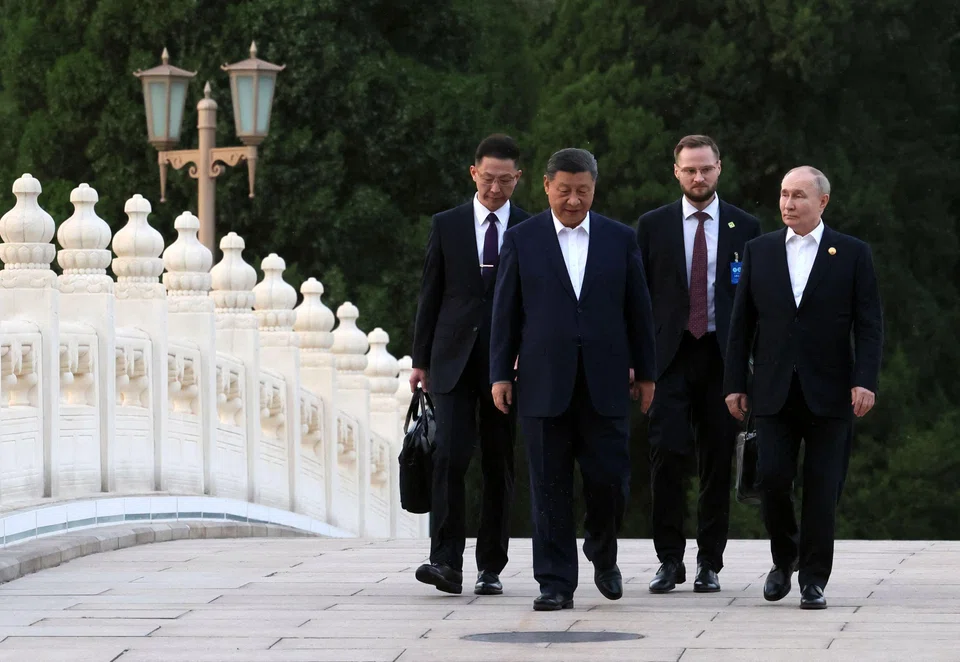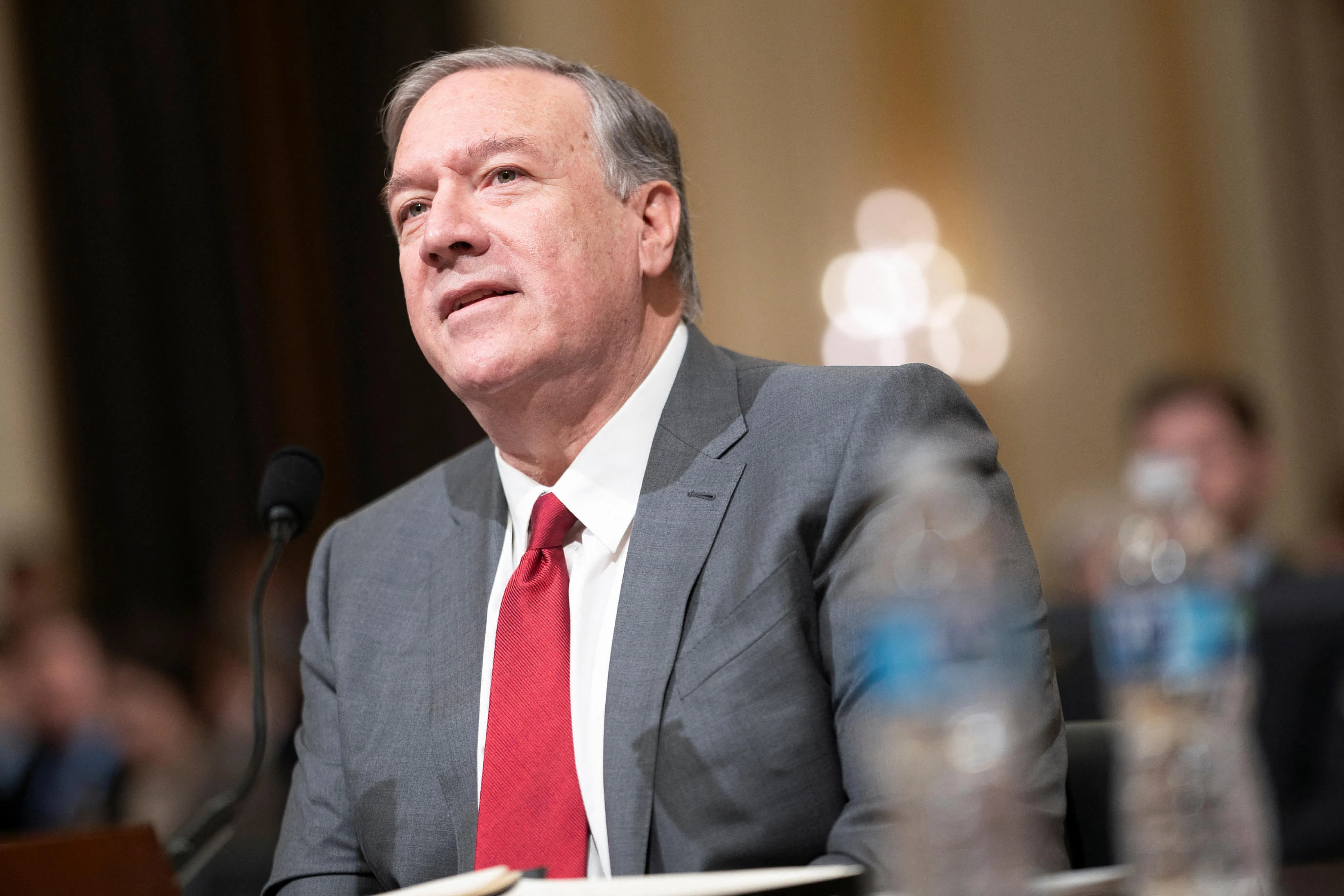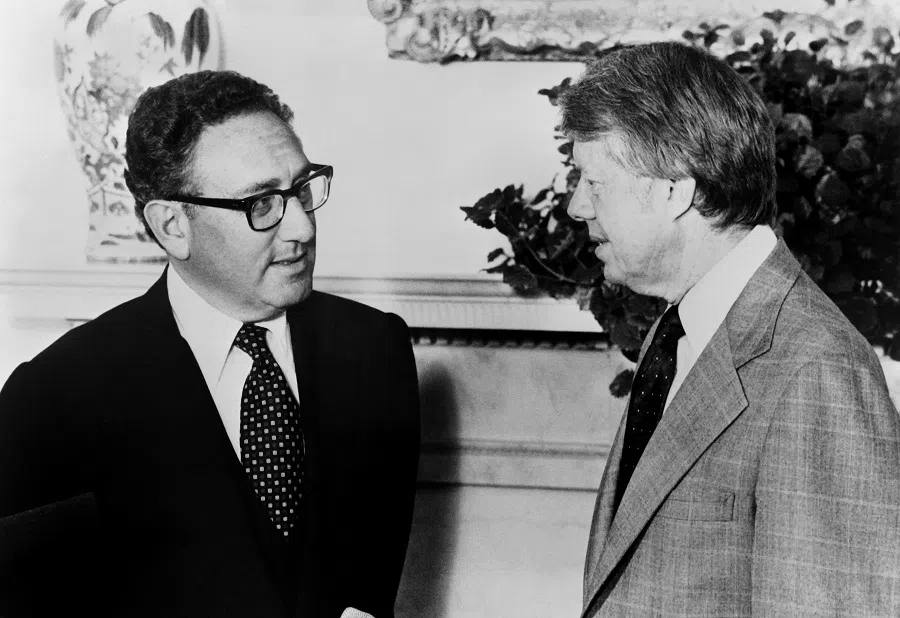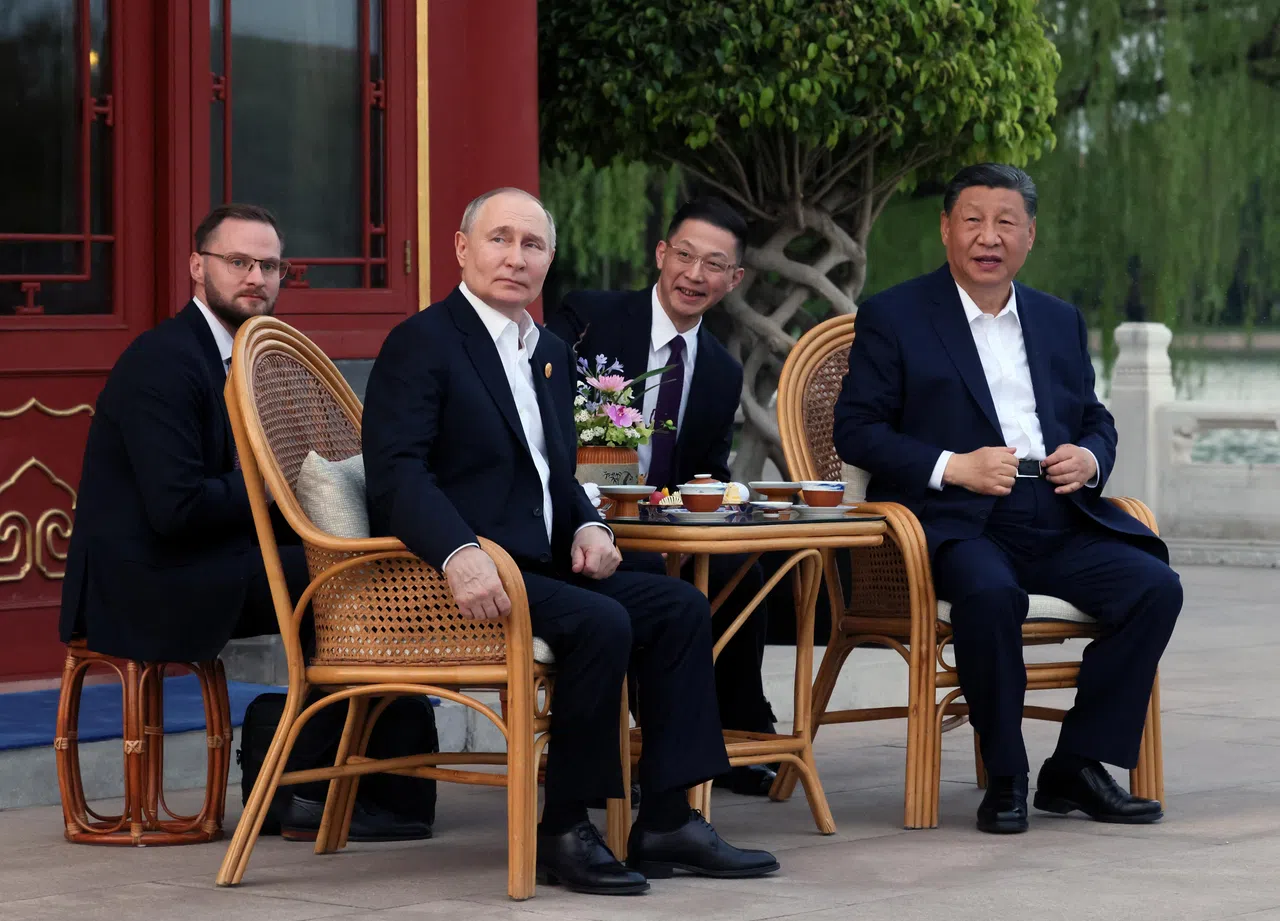Did the US help forge the China-Russia alliance?
US-based Chinese academic Qinglian He notes that while the US is keen to prevent China and Russia from getting too close and forming an alliance, it may not be easy to stop what seems to be a natural progression, given how reliant China and Russia are on each other in various areas such as economics and politics. Not only that, the US may have played a significant role in strengthening the alliance.

Former US Secretary of State Mike Pompeo has recently suggested applying pressure to break up the China-Russia alliance. To ascertain whether this is possible, one must examine the origins of this strategic partnership and the imperative to enhance it further.
On 16 May, fresh from his visit to Europe, Chinese President Xi Jinping met with Russian President Vladimir Putin in China. They signed the Joint Statement on Deepening the China-Russia Comprehensive Strategic Partnership of Coordination for the New Era and witnessed the signing of various intergovernmental and interagency cooperation documents.
The statement says both countries will strengthen coordination and cooperation in response to Washington’s “dual containment” policy targeting China and Russia. Russia also welcomed China’s approach to solving the Ukrainian crisis through political and diplomatic means.
The US reacted strongly. On 16 May, Department of State spokesperson Vedant Patel warned Beijing that China cannot have it both ways between the West and Russia. US director of national intelligence Avril Haines also warned that China and Russia have begun closer military ties on the Taiwan issue, forcing the US into a two-front war. In an exclusive interview with Voice of America (VOA), Pompeo said that the US must, to the best of its ability, separate China and Russia, which are in collusion.
Concerns over China’s military aid to Russia
Patel specifically highlighted that China’s support for Russia’s defence industrial base “not only threatens Ukrainian security, it threatens European security” — the US government has finally torn away the veil at the highest level.
Since the Russia-Ukraine war, the West has been most concerned about and tried its best to prevent China’s military aid to Russia under various guises. China’s approach has been to provide civilian drones to both sides instead of direct provision of weapons. It has also exported large quantities of machine tools to support Russia’s defence industry. Chinese suppliers currently dominate the trade in computer numerical controlled (CNC) devices vital to Moscow’s military industry.

CNC devices or CNC machine tools are a key indicator of a nation’s manufacturing industry and industrial modernisation, and are an essential and strategic primary industry in defence. The UK Financial Times article “China’s Advanced Machine Tool Exports to Russia Soar After Ukraine Invasion” cites the latest data from Russian customs declarations that Chinese manufacturers shipped US$68 million of CNC devices in July 2023; before the Russia-Ukraine war began in February 2022, it was a mere US$6.5 million.
Forgotten warnings of eminent thinkers
It is a little ironic when one contrasts Pompeo’s rhetoric with his approach to managing China-Russia relations while serving as US secretary of state. During his tenure, he emphasised a competition of values between Western and unfree nations, grouping China and Russia as one. This shift in stance is quite significant.
In the recent VOA interview, Pompeo said that China and Russia are coordinated in the Indo-Pacific and on Taiwan in the same way they are coordinated in Europe on the Russia-Ukraine war. He urged the US to do its utmost to sever the collusion between China and Russia.
Clearly, he has previously forgotten the warnings by two renowned masters in global strategy regarding managing China-Russia relations.
He [Brzezinski] believed that the deterioration of US-China relations must be avoided as it would result in serious consequences for Asia-Pacific and the US’s Eurasia strategy.
Between the 1970s and 2000, three eminent figures shaped US global strategy. Samuel Huntington laid the conceptual groundwork; Henry Kissinger pushed for a coalition with China to facilitate a bloodless end to the Cold War, securing US victory; and Zbigniew Brzezinski advocated for US leadership and global control via a Eurasia-focused geostrategy in the post-Cold War era. Brzezinski’s book, The Grand Chessboard: American Primacy and its Geostrategic Imperatives, is one of the most important documents since the end of the Cold War.
Former Secretaries of State Kissinger and Brzezinski clearly proposed that the US must find ways to prevent an alliance of China, Russia, and Iran, as that would be extremely challenging for the US.
Brzezinski also specifically highlighted that China’s goal (from the mid-1990s to 2015) was to have the US needing China as a partner and ally due to its weakening influence in Asia-Pacific; the US should accept the certainty of increased China influence in Asia-Pacific, and appreciate their common geopolitical interests in Northeast Asia and Central Asia. He believed that the deterioration of US-China relations must be avoided as it would result in serious consequences for Asia-Pacific and the US’s Eurasia strategy.

Unfortunately, the US strategic diplomacy community seems to have forgotten the warnings of these two masters.
The US factor in China-Russia relations
The 2014 Crimean crisis is a turning point in the warming of China-Russia relations, and the US factor cannot be ignored.
Over the past century, China-Russia relations have undergone three major phases of change, with China regarding the Soviet Union as teacher and enemy, and later Russia as ally.
After the 20th Congress of the Communist Party of the Soviet Union in 1956, its status for China changed from teacher to enemy. After China’s reforms and opening up in 1978, the Communist Party of China gradually changed its attitude towards the Soviet Union. However, it was not until the Hu Jintao era that China-Russia relations could be considered normalised.
It was not until the Crimean crisis in February 2014, when Russia faced severe sanctions from the West, that it had to adopt a less condescending attitude towards Beijing.
At that time, the double-headed eagle of Russia was not alone in attempting to be friendly with the West. China and the US also had strategic engagement and held annual high-level strategic dialogues. Since both China and Russia hoped to cultivate good relations with the US, they naturally thought little of each other. In particular, Russia did not take China seriously then.
It was not until the Crimean crisis in February 2014, when Russia faced severe sanctions from the West, that it had to adopt a less condescending attitude towards Beijing. This adjustment helped to smooth over the previously bumpy China-Russia energy cooperation.
In the subsequent decade, China and Russia began various cooperation for mutual interests, including geopolitically partnering up against the US, and economically fulfilling each other’s needs since Russia is a major energy producer and China has huge energy demands.
Creating enemies out of China and Russia
Pompeo now believes that the US must do everything possible to break up the China-Russia collusion and alliance. Evidently, he is unwilling to think back on his aggression against Russia and China while he was secretary of state.
He once said that Xi Jinping is more dangerous than the Nazis, adding that Xi is not only the biggest existential threat to the world, but also a threat to the American way of life for future generations. Pompeo is the only US secretary of state to publicly humiliate and attack the Chinese government.
As the media focused on Donald Trump’s Russiagate scandal while he was secretary of state, Pompeo’s foreign relations with Russia was rarely reported until his actual role was publicised in the New York Times article “The Spy War: How the C.I.A. Secretly Helps Ukraine Fight Putin” on 25 February 2024.

The article says that Pompeo and John Bolton, respectively the secretary of state and national security adviser during the Trump era, were both “Russia hawks”. “Tip-toeing around Trump”, they established a CIA-led department specifically countering Russia.
The head of this department organised a secret meeting at The Hague for CIA representatives with the UK’s MI6, the Ukrainian intelligence agency HUR, the Dutch intelligence service and other agencies, resulting in a secret coalition against Russia, of which the Ukrainians were vital members. Although the New York Times article did not indicate the specific period of time when this happened, Bolton served as national security adviser for only a year and a half, from March 2018 to September 2019.
China has come to realise that within the US geopolitical strategic framework, the relationship between China and Russia is one of interdependence, making them inseparable from each other.
By hook or by crook?
Breaking up an alliance calls for either inducement or force. Russia is an adversary that the US is keen on eradicating, leaving no room for reconciliation between the two. Therefore, these two tactics can only be deployed against China.
Apart from the necessary economic and trade interactions, the US could extend cooperation to China on climate change, pandemics and nuclear proliferation as part of their strategic engagement. However, China has come to realise that within the US geopolitical strategic framework, the relationship between China and Russia is one of interdependence, making them inseparable from each other.
Biden has repeatedly said that the Russia-Ukraine war is “a battle between autocracy and democracy”, implying that China should remain cautious, as it could be the next target after Russia, given the US’s mission to eradicate autocracy. And with the US and Europe openly criticising China’s position on the Russia-Ukraine war as being on “the wrong side”, diplomatic incentives are viewed as ineffective, leaving force as the sole viable means of deterrence.
Indeed, the deepening strategic partnership between China and Russia raises the prospect of defence production cooperation, which is a cause for concern for the US. However, given the present circumstances and trajectory of events, while Pompeo’s proposal to sever the China-Russia alliance might seem logical, it is currently not practical.
This article was first published in Lianhe Zaobao as “中俄同盟有被拆散的可能吗?“.





